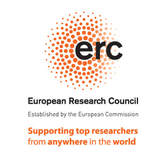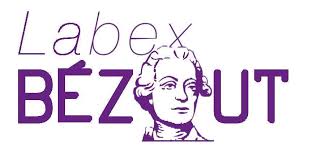Advances in Computational Statistical Physics
Perspectives en physique statistique computationnelle
17 – 21 September 2018
|
Scientific Committee
Comité scientifique Josselin Garnier (Université Paris Diderot) |
Organizing Committee
Comité d’organisation Tony Lelièvre (CERMICS, Ecole des Ponts ParisTech) |
|
The aim of this workshop is to gather applied mathematicians and researchers from other scientific fields working on the development of efficient numerical methods to sample high dimensional and multimodal probability measures. The design of such algorithms is becoming more and more pregnant in many fields of applications. We have particularly in mind molecular simulation where scientists are interested in models of matter at the atomistic level. With the development of large-scale computing facilities, simulations of materials at the molecular scale are now performed on a daily basis. There is a need to develop further the rigorous mathematical analysis of the numerical methods used in this field, in order to assess the accuracy of these techniques, to improve them, and to propose new approaches. Applications also concern Bayesian inference in computational statistics, where the complexity increases as the size of data sets increases. The subjects we would like to cover in this workshop include: the efficient sampling of the Boltzmann-Gibbs distribution and free energy calculation, the efficient sampling of metastable dynamics and rare event simulations, coarse-graining methods and finally the applications of advanced numerical methods to practical applications.
|
L’objectif de cette conférence est de réunir des mathématiciens appliqués et des chercheurs d’autres domaines scientifiques travaillant sur le développement de méthodes numériques efficaces pour l’échantillonnage de mesures de probabilités en grande dimension et multimodales. Cette problématique devient de plus en plus importante dans de nombreux champs d’application. Cette conférence portera en particulier sur les applications en simulation moléculaire. Avec le développement des moyens de calcul, la simulation des matériaux à l’échelle atomique sur ordinateur est devenue aujourd’hui un des outils essentiels de compréhension et d’analyse de la matière, au même titre que la recherche fondamentale et l’expérience. Ce développement récent ouvre de nouvelles perspectives en mathématiques appliquées, liées notamment à l’analyse des algorithmes utilisés (précision, efficacité) et à l’élaboration de nouvelles approches numériques. Des problématiques similaires apparaissent en statistique computationnelle (inférence bayésienne), avec une complexité nouvelle qui se pose à mesure que la taille des données augmente. Voici les sujets qui seront abordés lors de cette conférence: l’échantillonnage efficace de mesures de Boltzmann-Gibbs et les calculs d’énergie libre, l’échantillonnage efficace de dynamiques métastables et la simulation des évènements rares, les méthodes de réduction de modèles et enfin les questions soulevées par l’utilisation de méthodes récentes sur des problèmes pratiques.
|
Anton Arnold (TU Wien) – Large-time behavior in (hypo)coercive ODE-systems and kinetic models (pdf)
Michel Benaïm (Université de Neuchâtel) – Processes with reinforcement and approximation of Quasi-Stationary Distributions (pdf)
Nils Berglund (Université d’Orléans) – Trace process and metastability (pdf)
Joris Bierkens (TU Delft) – Piecewise Deterministic Monte Carlo (pdf)
Freddy Bouchet (CNRS / ENS Lyon) – Rare events in complex dynamical systems: the examples of the climate and the solar system dynamics (pdf)
Charles Edouard Bréhier (CNRS / Université Lyon 1) – Sampling invariant distributions of SPDEs (pdf)
Frédéric Cazals (Inria Sophia Antipolis) – Randomized algorithms for volume/density of states calculations in high-dimensional spaces (pdf)
Andrew Duncan (University of Sussex) – A general Stein based methodology for tuning sampling algorithms in molecular dynamics simulations
Alain Durmus (ENS Paris Saclay) – On Langevin Monte Carlo methods (pdf)
Andreas Eberle (Bonn University) – Coupling approaches and ergodicity for sampling methods
Ivan Gentil (Université de Lyon) – A short review on the Schrödinger problem via Otto calculus
Arnaud Guillin (Université de Clermont-Ferrand) – Uniform in time propagation of chaos in non convex potential
Arnaud Guyader (Sorbonne Université) – Rare Event Simulation for Molecular Dynamics – VIDEO –
Carsten Hartmann (BTU Cottbus-Senftenberg) – A least-squares Monte Carlo approach to rare events simulation (pdf)
Jérôme Hénin (CNRS/ Institut de Biologie Physico-Chimique, Paris) – Adaptive sampling based on collective variables in biomolecular simulations
Kurt Kremer (Max Planck Institute for Polymer Research) – Multiscale Modeling for Soft Matter – Perspectives and Challenges – VIDEO –
Dorian Le Peutrec (Université Paris Sud) – Most probable exit points for the overdamped Langevin dynamics (pdf)
Jonathan Mattingly (Duke University) – Approximate MCMC
Laurent Michel (Université de Nice Sophia-Antipolis) – Semiclassical methods for Langevin dynamics at low temperature (pdf) – VIDEO –
Manon Michel (École polytechnique) – From cluster algorithms to PDMP algorithms: a Monte Carlo story of symmetry exploitation – VIDEO –
Laurent Miclo (CNRS / Institut de Mathématiques de Toulouse) – On the construction of set-valued dual processes (pdf)
Pierre Monmarché (Sorbonne Université) – Couplings for non-linear perturbations of Markov processes via jump mechanisms (pdf)
Michela Ottobre (Heriott Watt University) – Beyond the Hörmander Condition (pdf)
Danny Perez (Los Alamos National Laboratory) – Parallel Approaches to Longtime Atomistic Simulations – (pdf)
Petr Plecháč (University of Delaware) – Approximation of quantum observables by molecular dynamics – (pdf)
Matej Prapotnik (National Institute of Chemistry Ljubljana) – Open Boundary Molecular Dynamics of a DNA molecule in a hybrid explicit/implicit salt solution (pdf)
Julien Reygner (École des Ponts ParisTech) – Central Limit Theorem for stationary Fleming-Viot particle systems in finite spaces (pdf)
Mathias Rousset (CNRS / INRIA Rennes – Bretagne Atlantique) – A Central Limit Theorem for Fleming-Viot Particle Systems (pdf)
Gideon Simpson (Drexel University) – Sampling from Rough Energy Landscapes (pdf)
Konstantinos Spiliopoulos (Boston University) – Mean Field Analysis of Neural Networks (pdf)
Thomas Swinburne (Los Alamos National Laboratory) – Uncertainty-driven construction of Markov models from accelerated molecular dynamics (pdf)
Eric Vanden-Eijnden (Courant Institute NYU) – Neural Networks as Interacting Particle Systems (pdf)
Titus van Erp (NTNU) – Transition path sampling approaches for the study of rare events (pdf)
David Wales (Cambridge University) – Energy Landscapes: Molecules and Nanodevices and Machine learning (pdf)
Wei Zhang (Freie Universität Berlin) – Properties and error analysis of the effective dynamics for diffusion processes (pdf)
Posters Session
Manon Baudel (CERMICS- École des Ponts ParisTech) – Time error estimation for metastable Markov processes
Augustin Chevallier (INRIA) – Efficient random walk for Wang-Landau algorithm in high-dimensional spaces
Quiming Du (Sorbonne Université) – Variance estimation for Adaptive Multilevel Splitting
Grégoire Ferré (CERMICS- École des Ponts ParisTech) – Adaptive sampling of large deviations
Florent Hédin (CERMICS- École des Ponts ParisTech) – The Generalized Parallel Replica dynamics for the long time simulation of metastable biochemical systemsL.
Laura Lopes (CERMICS- École des Ponts ParisTech) – Simulating rare events in molecular dynamics with the Adaptive Multilevel Splitting
Boris Nectoux (TU Wien) – Most probable places of exit from a domain (pdf)
Lara Neureither (BTU Cottbus-Senftenberg) – Averaging and conditional expectations: Some aspects of a comparison
Feliks Nüske (Rice University) – Spectral Properties of Projected Dynamics
Nikolas Nüsken (Imperial College London) – Constructing sampling schemes via coupling: Markov semigroups and optimal transport
Lorenz Richter (FU Berlin, BTU Cottbus-Senftenberg) – Optimal importance sampling using stochastic control
Joran Rolland (Institut PPrime, ENSMA) – From models of wall flows to three dimensional Couette flow in the study of extremely rare collapse and build up of transitional wall turbulence
Julien Roussel (CERMICS-École des Ponts ParisTech) – A Perturbative Approach to Control Variates in Molecular Dynamics
Upanshu Sharma (CERMICS- École des Ponts ParisTech) – An inequality connecting entropy distance, Fisher Information and large deviations
Zofia Trstanova (University of Edinburgh) – Sampling strategies and diffusion maps
Tobias Wöhrer (TU Wien) – Sharp decay estimates in defective evolution equations with uncertainty





